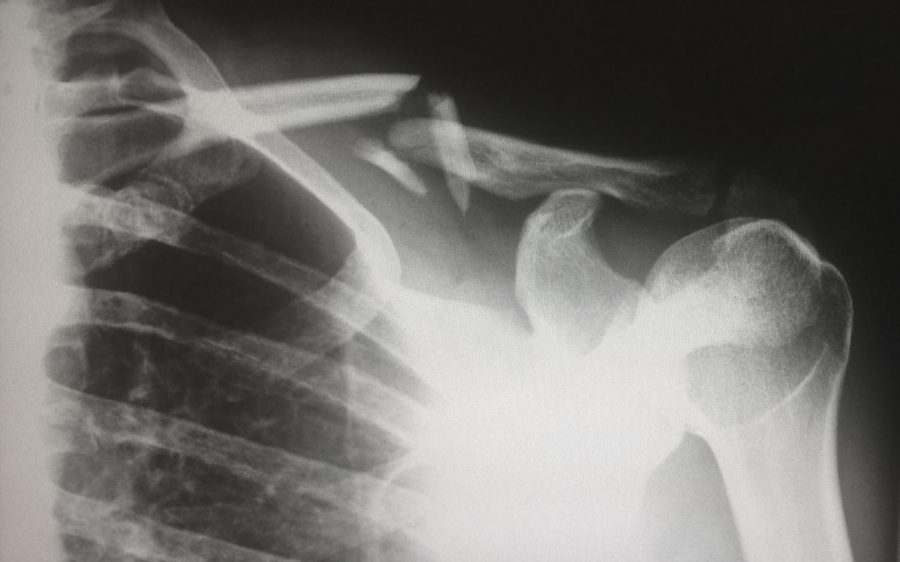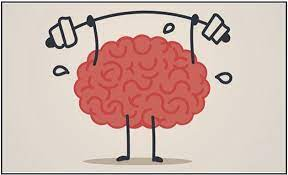Losing a Season or Your Mind, Injury Among Athletes
If you break your arm, you get a cast. Injuries have consequences, but not all of these consequences can be seen on the surface. Athletes often deal with mental strain and illness following an injury. Depression, loneliness, and self doubt can all follow an injury. If you break your arm playing soccer, you will be sad to miss the rest of the season. You will be lonely without your team. You may even be scared to come back. These are the effects of injury that no one talks about.
I’m 17, I play football, rugby, and snowboard. Throughout my athletic career, I’ve dealt with injury dozens of times. Feeling depressed, lonely, and self conscious, I’ve dealt with it all. My injuries mostly revolve around my shoulder. Being 17 with two shoulder surgeries under my belt, I’ve spent a lot of time in recovery. My first surgery took place the summer of 8th grade. I was in an immobilizer the entire summer. I spent my time on the couch alone, inactive, and depressed. By the time my freshman year started I had just gotten out of my sling. I spent the whole summer missing the things I loved to do, so naturally when the school year started I wasn’t in a good state of mind, and, unfortunately, my grades that year reflected that. A year after my surgery, I dislocated my shoulder again while snowboarding with my family. When I found out that I needed a second surgery, I was afraid of slipping back into the same depression that dogged me my freshman year. This time, I reached out to my close friends to keep me company, I didn’t let myself fall behind again. I took action for my own mental health.
One year later, I’ve got a clean bill of health physically but I’m still dealing with the effects of my injuries. Although in a better mind space, I’m not able to play the sports I love without thinking of the pain I’ve suffered from them. I don’t feel confident in myself or my body. Even though I can return to play, I’m not able to play the way I want to, the way I used too. I doubt myself. The love hate relationship I’ve built with athletics is unhealthy in my life but I’m finding out it may be avoidable.
According to Dr. Dan Pillow, a Ph.D. clinical sports psychologist with Henry Ford Health System, my experience is typical. In a 2019 blog post, he states, “Missing out on competition can affect your emotional well-being, social well-being, and your self-concept or identity.”
Sport psychology is the study of how psychology factors influence sports, athletic performance, exercise, and physical activity. Knowledge and growth in the area of psychology of healing have been growing in the last decade. Yet the study of sport psychology mainly occurs at professional levels of play. The everyday high school athlete isn’t involved in these studies, nor are they made aware of the possible effects of injury. This is something that needs to change in high school athletics by spreading awareness of healthy recovery to both coaches and players.
When facing mental illness following injury, athletes are often embarrassed and feel weak. But mental illness is nothing to be embarrassed about. I’ve struggled with it for almost my entire athletic career and ignoring or denying the problem, like I have, has only hurt me. There is a stigma around athletics that we as a community can work to fix.
Pro athletes are leading this push by coming forward with their own struggles. Famous quarterback Andrew Luck and basketball player Kevin Love are the two examples. They have both openly expressed their struggles with mental issues in a hope to humanize athletes.
Andrew Luck suffered a shoulder injury that put the 29-year-old in a sticky situation. Andrew Luck’s decision to retire shocked millions as he was the highest-rated quarterback at the time. In press conferences, Andrew stated that “the injuries he had sustained wore him down physically and mentally.” Feeling trapped, Andrew Luck decided to weigh his mental well-being over millions of dollars in contracts. He understood the mental effects that came with injury. Worn down from the sport, Luck took action towards bettering himself and despite backlash he stayed strong in his decision.
In Kevin Love’s widely read article “Everyone Is Going Through Something“, he addresses his struggle with anxiety by detailing his experience with a panic attack that occurred in the middle of a game. He had this to say about it, “I remember how relieved I was to be back on the court and feeling more like myself. But I distinctly remember being more relieved than anything that nobody had found out why I had left the game against Atlanta”. More than returning to the sport he loves, he was relieved that no one had figured out about his mental illness. This thought opened Kevin’s eyes to the poor stigma that mental illness is surrounded by. Following his realisation, he wrote the essay hoping to destigmatize mental illness among athletes. In response to Kevin’s essay, the NBA has set a rule requiring every team to have a licensed sports psychologist on site.
Mental health holds an embarrassing stigma; people often see it as something to hide, not fix. Reaching out to a struggling friend and expressing that you understand their pain is the best way to help them. Although that is much easier said than done as it can be hard to recognize if someone is struggling. Look for these common symptoms if you are concerned your friends may be struggling with a mental health issue:
- Apathy is the neglect of social events and basic obligations and is a ubiquitous sign of mental illness.
- If it seems that your friend is restless, can’t sit still or hold a conversation all of a sudden, it most likely means they have something pressing on their mind and can be a sign that help is needed.
- Substance abuse is perhaps the biggest call for help as people will sometimes increase their substance use, thinking it is a release from reality. If you notice your friend drinking more than usual or experimenting with drugs, please take care of them by making sure they don’t try anything dangerous and get home safely. Make sure to follow up with them the next day to lend support.
Once you notice the symptoms above, confronting your friend can be tricky; if you do it the wrong way it could increase their mental anguish. When finding out someone knows what you are going through, it can be a knee jerk reaction to shut out that person. To prevent this, you have to take precautions in your approach. Instead of telling someone that you know they are struggling, approach them with curiosity by asking them if everything is okay at home or if they are doing okay. Even if your friend denies any issues, let them know that you are there for them and always will be. Knowing that there is someone who they can talk to is a glimpse of light that will help them make it through.
As sports psychology grows in the professional scene, high school athletes are being left in the dark. To help my fellow high schoolers, I have three recovery strategies that were mentioned frequently in the sport psychology articles that I have read:
First, focus on the present. When you are too eager to return to play you will often go back before fully healed. Whether you haven’t recovered physically or mentally, you risk major consequences when you return too soon by heightening the chance of reinjury. You know your body best, that means you know when you are ready to play again.
Next, understand the injury you suffered. Knowing what injury you suffered and how it occurred lets you understand the recovery process better. Knowing the repercussions of your injury is vital for getting a hold of yourself mentally. Do research on the healing process for your particular injury and know what you can do to prevent reinjury in the future. To find a healing strategy that fits your needs, start with a visit to this article or this video.
The final strategy I would recommend is wearing a brace. There are excellent braces out there; I can promise you there is a brace for almost any injury. When wearing a brace, your confidence skyrockets; it allows you to feel protected but not limited in your motion. The only reason I can snowboard is because of the mac daddy brace I wear. To find the right brace for
your circumstances, talk to your doctor.
Injury transcends physical pain; accept your mental health as reality. Everyone suffers from it; hiding it doesn’t help anyone. The first step towards proper healing is to spread awareness of mental health; this starts with you. Sharing your own story is a great way to overcome your mental issues and improve the stigma of mental illness. The platform, OK2TALK, offers an easy way to share your experience. To be healthy, you have to be happy. Take care of yourself as well as your loved ones.
Bibliography
“7 Tips For Recovering Mentally After A Sports Injury.” Henry Ford LiveWell, Henry Ford
Health System Staff, 29 June 2019,
www.henryford.com/blog/2019/06/7-tips-recovery-after-sports-injury.
Alva, Suraj. “Why Did Andrew Luck Retire? The Real Reason behind the Quarterback’s
NFL Exit Revealed.” Republic World, Republic World, 22 Nov. 2019,
www.republicworld.com/sports-news/other-sports/why-did-andrew-luck-retire-heres-the-r
eal-reason.html.
Hand Therapy Products. “Jura Black Wrist Brace.” Hand Therapy Products, 2021,
www.handtherapyproducts.com/products/jura-black-wrist-brace.
Love, Kevin. “Everyone Is Going Through Something: By Kevin Love.” The Players’
Tribune, The Players’ Tribune, 28 Jan. 2021,
www.theplayerstribune.com/articles/kevin-love-everyone-is-going-through-something.
Max Sports HD. “Kevin Love Top 10 Plays of Career.” YouTube, YouTube, 19 Jan. 2016,
www.youtube.com/watch?v=HmapSERjIB8.
NFL Reel. “Andrew Luck Top 10 Plays of Career.” YouTube, YouTube, 13 May 2017,
www.youtube.com/watch?v=rBFkQG5uYX8.
Pillow, Dan. “7 Tips For Recovering Mentally After A Sports Injury.” Henry Ford LiveWell,
Henry Ford Health System Staff, 21 June 2019,
www.henryford.com/blog/2019/06/7-tips-recovery-after-sports-injury.
Shock Doctor. “Ultra Shoulder Support with Stability Control.” Shock Doctor, 2021,
www.shockdoctor.com/products/ultra-shoulder-support-with-stability-control?variant=14
54273828917.
sportsinjuryphysio. “How to Deal with the Mental Side of Being Injured.” YouTube, Sports
Injury Physio, 26 Feb. 2019, www.youtube.com/watch?v=ce9LF0ChdOw.
Today, Usa. “Cleveland Cavaliers Forward Kevin Love Opens up about a Panic Attack .”
Twitter, Twitter, 6 Mar. 2018, twitter.com/usatoday/status/971067520903008256.


